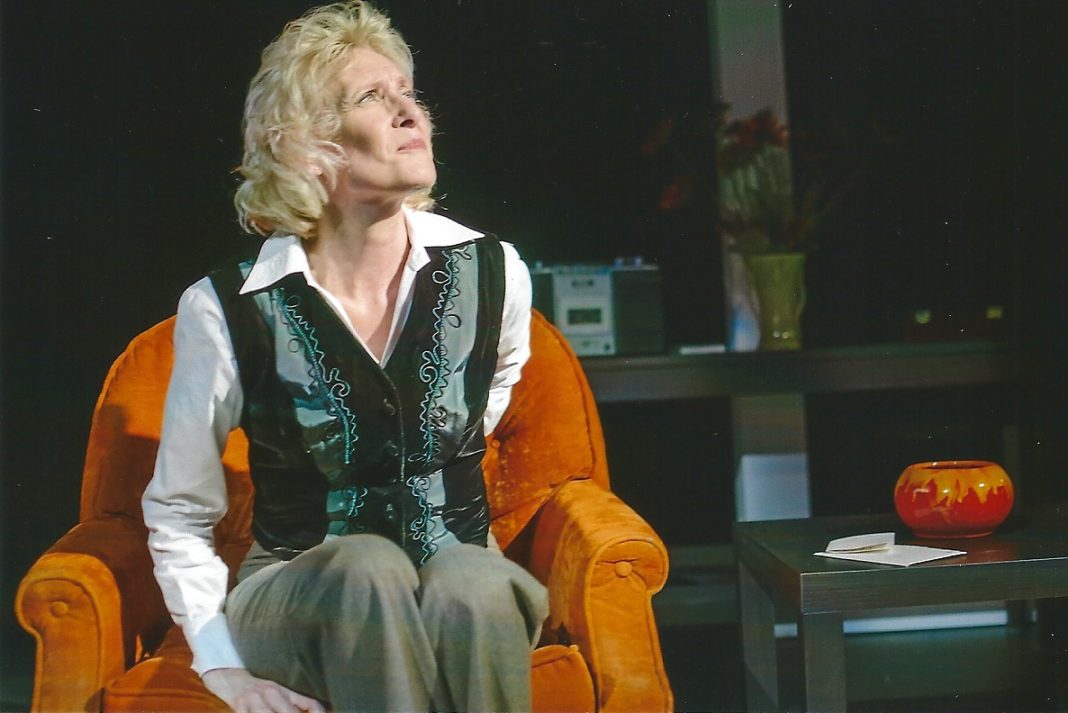Submitted by The Washington Center for the Performing Arts
The infamous actions of Stella Goldschlag – a “catcher” of Jews during the Second World War (despite being Jewish herself) in order to guarantee her safety and that of her parents – were undoubtedly heinous and evil. Yet Gail Louw’s new play “Blonde Poison” – the nickname given to Goldschlag thanks to her typically Aryan looks – poses the question, what would you do in that situation?

“It really talks to people about the human condition and human nature. There is so much torture, misery, trouble and strife in the world, and it really questions what an individual’s role is in all this,” she says. “What actually happens to people in extraordinary circumstances and situations? How do they respond?”
The play draws heavily on the book Stella, written by Goldschlag’s childhood friend Peter Wyden, who nurtured a schoolyard crush for her before escaping Nazi Germany in 1937. The book explores what drove the young woman to become an informant, and Louw took Wyden and Goldschlag’s reunion interview as the basis for her work.
Louw is no stranger to the time period, or writing about her faith – her play Two Sisters, part of Devonshire Park’s Studio Season last year, was based on her mother and aunt meeting up and talking about how the events of the war shaped their family. “Many of my plays are about Jews. I am Jewish, but I’m not a terribly good one. Clearly, though, all these things are buried within – my mother’s parents were killed in a concentration camp,” says Louw.
“The thing about Stella was that she was such a cruel, awful, dreadful, evil person – but you can’t help but understand where she is coming from. If you were given the opportunity to save yourself and your beloved parents, people would take it. Then again, you have to remember a lot of people didn’t take it, they didn’t become betrayers and took the more honourable way out.”
It is extraordinary that Goldschlag’s journey to becoming a monster – estimates place that somewhere in the region of between 600 and 3,000 Jewish men and women were captured and sent to camps following her entrapment – came from being betrayed herself. At the start of the war she was handed over to the Gestapo by an acquaintance, a fellow Jew, and was arrested and beaten for carrying forged ID.
“For her to then turn with such vengeance… wow, it’s difficult to believe,” exclaims Louw. “If you’re a German soldier or a Gestapo agent, you’re doing it for the Fatherland, but what was Stella doing it for? She was Jewish. At one point she says, ‘This way I have food and I have a bed… isn’t this what everybody wants?’ Yes, it is, but not at everybody else’s cost.”
Several sources, including the Holocaust Chronicle, have come to suggest that Goldschlag hated her Jewishness. It’s a statement Louw agrees with. “The German Jews were very disdainful of the Eastern ones, and thought they were disgusting, poor and dirty – these people who looked so Jewish and spoke this foreign language didn’t fit in and didn’t appreciate Brahms and Beethoven,” she explains.
“Some families were extremely secular and hated the whole thing of being Jewish – it wasn’t important to them. It was Hitler who made them become Jewish. Suddenly it was forced on them and they had to wear yellow stars and have it define them.”
Victim or monster? It seems nothing in Stella’s story, Louw argues, is black and white.
“In Holocaust literature there is a lot of stuff that makes you feel uplifted and stuff that makes you feel traumatised and depressed. Stella encompasses all of these things. The horrors of torture and betrayal, and also what one does to oneself,” she says.
Blonde Poison will be at the Washington Center for the Performing Arts for two nights, January 25 and 26, 2018. To purchase tickets, call 360-753-8586 or visit The Washington Center for the Performing Arts website.



















































